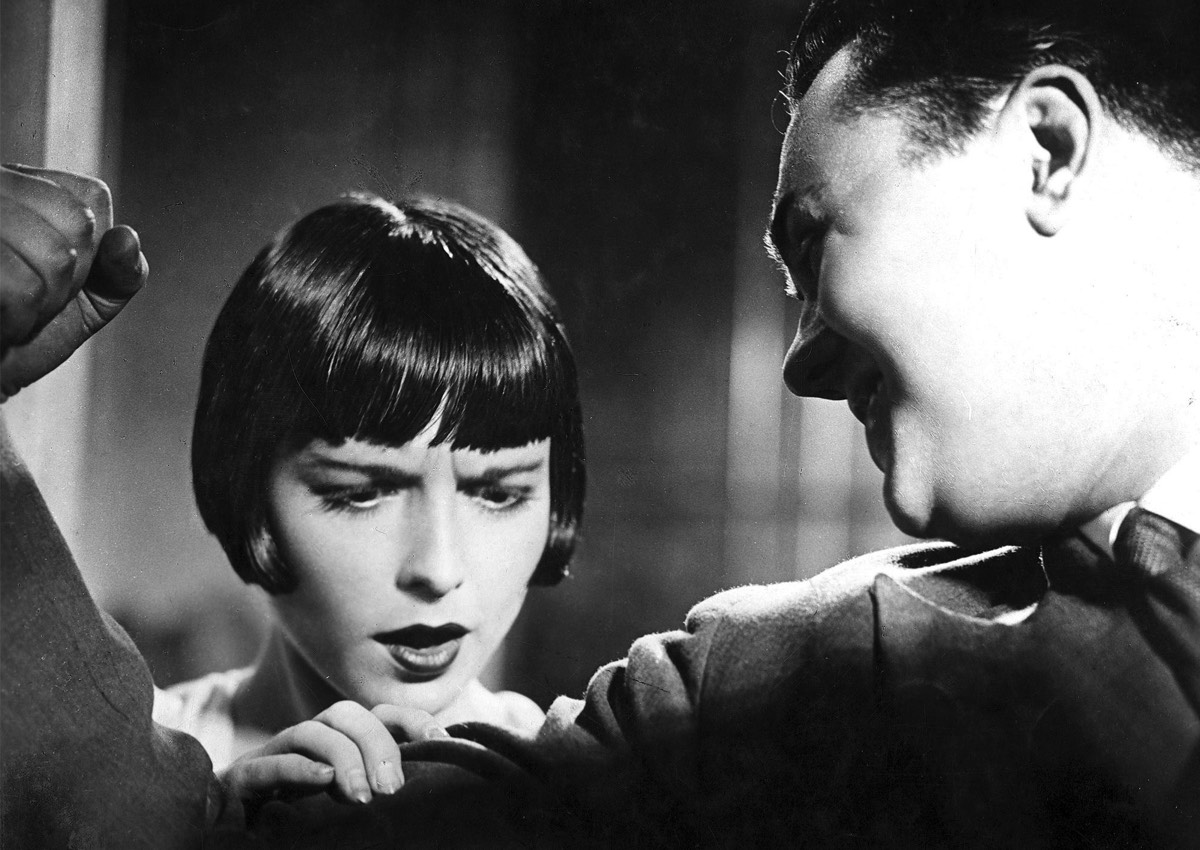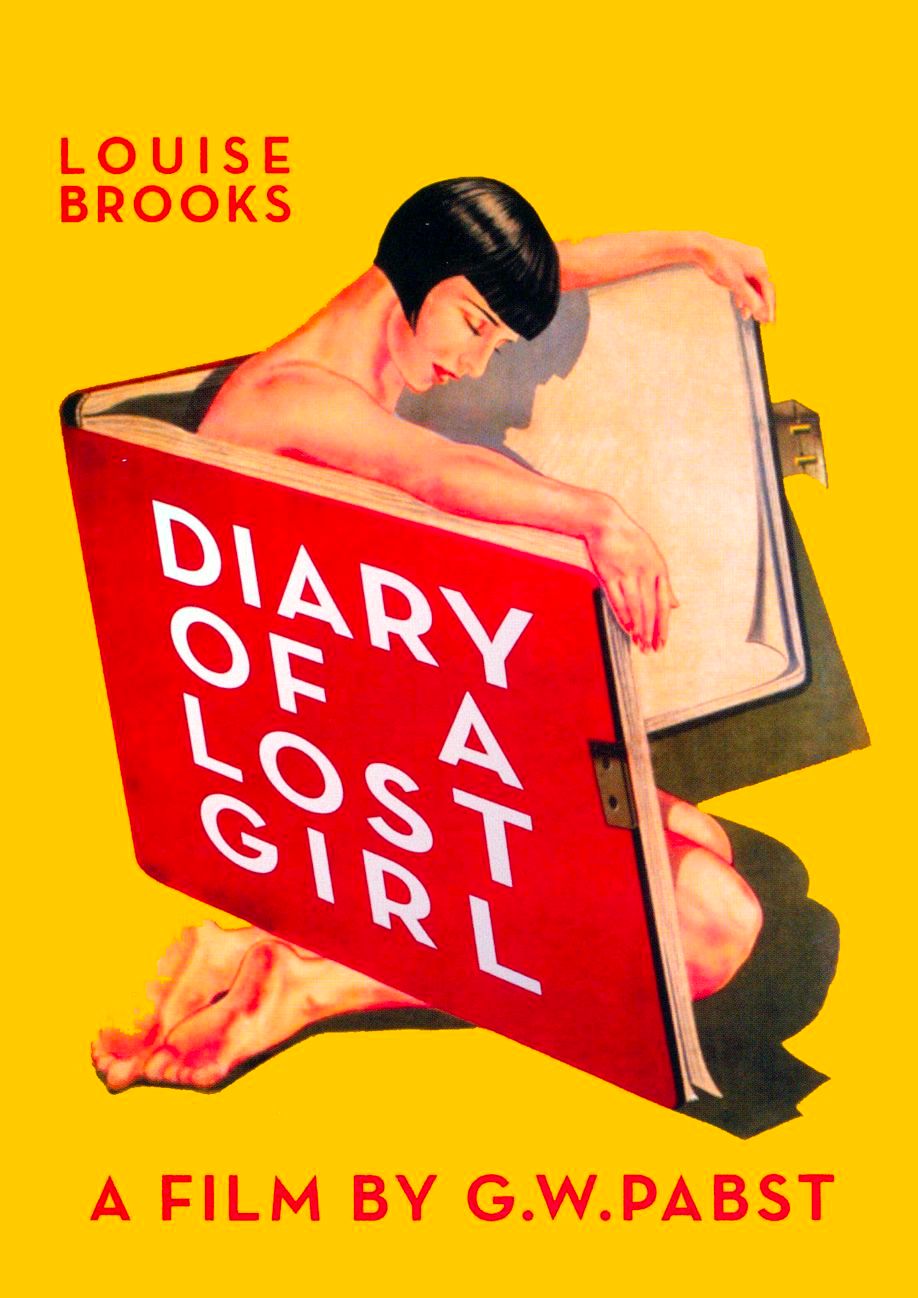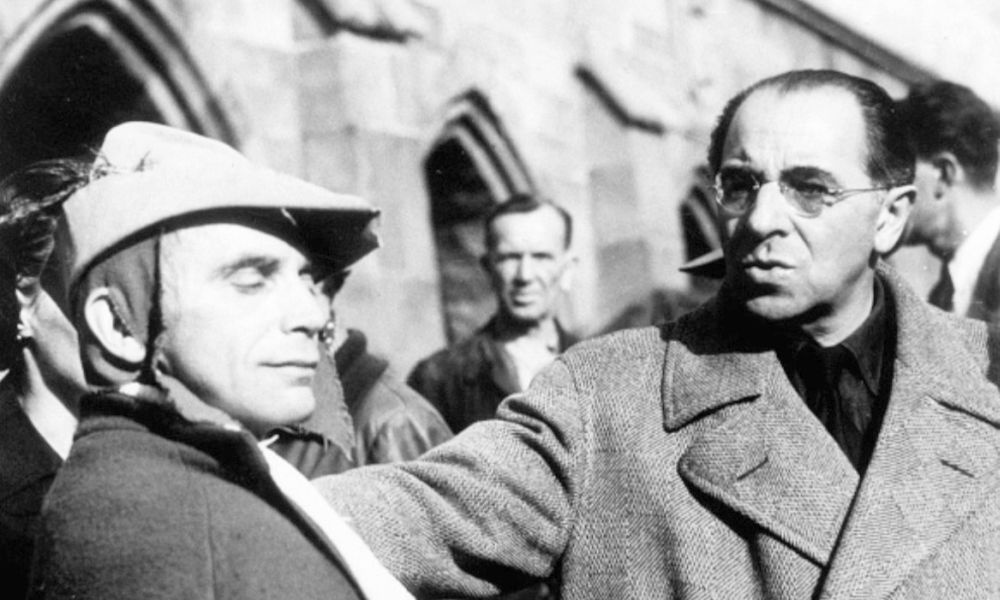"Compelling depictions of human degradation in a corrupt society, Pabst's films came out of a Germany defined by rapid inflation and the rise of Nazism, and went on to inspire a major shift from expressionism to realism in the German cinema." - Ronald Bergan (Eyewitness Companions: Film, 2006)
G.W. Pabst
Director / Screenwriter / Producer / Editor
(1885-1967) Born August 25, Raudnitz, Bohemia, Austria-Hungary
Top 250 Directors
(1885-1967) Born August 25, Raudnitz, Bohemia, Austria-Hungary
Top 250 Directors
Key Production Countries: Germany, France
Key Genres: Drama, Melodrama, Adventure, Romantic Adventure, Satire, Urban Drama
Key Collaborators: Ladislaus Vajda (Screenwriter), Ernö Metzner (Production Designer), Seymour Nebenzal (Producer), Fritz Arno Wagner (Cinematographer), Marc Sorkin (Editor), Gustav Diessl (Leading Character Actor), Hertha von Walther (Character Actress), Brigitte Helm (Leading Actress), Robert Lach (Cinematographer), Hans Oser (Editor), Fritz Rasp (Leading Character Actor), Ilka Grüning (Leading Character Actress)
Key Genres: Drama, Melodrama, Adventure, Romantic Adventure, Satire, Urban Drama
Key Collaborators: Ladislaus Vajda (Screenwriter), Ernö Metzner (Production Designer), Seymour Nebenzal (Producer), Fritz Arno Wagner (Cinematographer), Marc Sorkin (Editor), Gustav Diessl (Leading Character Actor), Hertha von Walther (Character Actress), Brigitte Helm (Leading Actress), Robert Lach (Cinematographer), Hans Oser (Editor), Fritz Rasp (Leading Character Actor), Ilka Grüning (Leading Character Actress)
“During the 1920s, the heyday of German silent cinema, Georg Wilhelm Pabst was considered one of its foremost directors, ranked alongside Fritz Lang and F.W. Murnau. His reputation suffered in the 1930s, when he turned out a series of indifferent films, and was destroyed during the war when, for reasons that still remain unclear, he made films for the Third Reich…. Rehabilitated after the war, Pabst continued making films until 1956, but few of them attracted much notice.“ - Philip Kemp (501 Movie Directors, 2007)
"Worthy, ambitious and solidly crafted, the early German films of Georg Wilhelm Pabst seem less impressive with the passing years, while his later work is largely negligible. Though once acclaimed for their psychological insights and humanist commitment, many of his films now appear merely proficient, notable mainly for strong performances and an assured creation of atmosphere… At his best, Pabst was able to depict, in convincing detail, a society in moral turmoil, although his ambition frequently exceeded his ability, and the results were merely decorative. His early work - revealing him as very much a product of his times - will be best remembered for the opportunities it offered actresses such as Garbo, Asia Nielsen, Brigitte Helm and Louise Brooks." - Geoff Andrew (The Film Handbook, 1989)

Pandora's Box (1929)
"Outside film-buff circles Pabst is largely renowned for his extraordinary and wildly stylised Pandora's Box (1929), which introduced the ill-fated but infinitely fascinating Louise Brooks to international audiences." - Mario Reading (The Movie Companion, 2006)
"Pabst refined cutting on movement to produce smooth transitions, while pioneering motivated point-of-view shots such as the eyeline match, as well as the shot-reverse-shot method of constructing a conversation. In so doing, he became one of the first filmmakers to direct actors for the camera, as well as for the truth of a scene. Moreover, he made expressive early use of sound at a time when the majority of his contemporaries were simply content to exploit its novelty value." - David Parkinson (BFI, 2019)
"Pabst was a consummate technician, a skill which fared him well in several films, including the melodrama of Pandora's Box (1929), starring Louise Brooks, the warfare of Westfront 1918 (1930) and the mining disaster movie Kameradschaft (1931). On the eve of the Second World War he planned to emigrate to America but decided to stay in Germany, where he made two films for the Nazis." - The Movie Book, 1999
"Unlike his great contemporaries Fritz Lang and F.W. Murnau, Pabst was largely unswayed by the Expressionist movement in German arts, but opted instead for a powerful realism - the better to explore the social themes that preoccupied him in such films as The Joyless Street (poverty and exploitation), The Love of Jeanne Ney (communism and bourgeois decadence), Westfront 1918 and Kameradschaft (war and nationalism). But Pabst possessed a romantic spirit, too. Pandora's Box, which immortalized Louise Brooks as Lulu, is one of the most splendidly erotic films ever made, and The Threepenny Opera is a delightful and atmospheric version of the Soho underworld fantasy." - The Illustrated Who's Who of the Cinema, 1983
Selected Filmography
{{row.titlelong}}
G.W. Pabst / Fan Club
Freddy Buache, David Thompson, Richard Leacock, Raymond Borde, Arthur Duarte, Yvonne Rainer, Philippa Hawker, Gavin Lambert, Bryan Chang, Milton do Prado, Paul Rotha, Henri Decoin.
Freddy Buache, David Thompson, Richard Leacock, Raymond Borde, Arthur Duarte, Yvonne Rainer, Philippa Hawker, Gavin Lambert, Bryan Chang, Milton do Prado, Paul Rotha, Henri Decoin.
"Fan Club"
These film critics/filmmakers have, on multiple occasions, selected this director’s work within film ballots/lists that they have submitted.
These film critics/filmmakers have, on multiple occasions, selected this director’s work within film ballots/lists that they have submitted.


